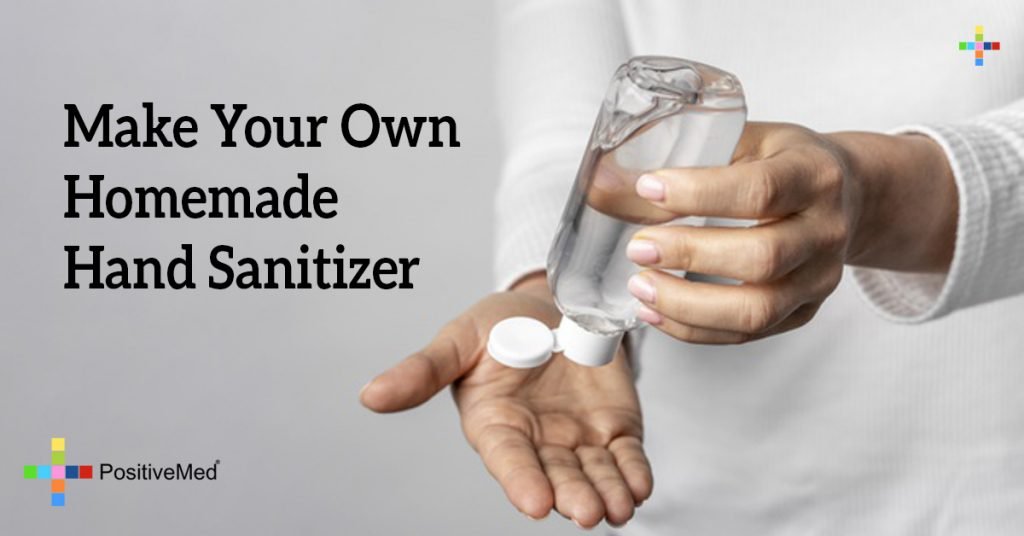
Make Your Own Homemade Hand Sanitizer
By PositiveMed-Team
Edited By Stephanie Dawson
Some people keep hand sanitizer with them to avoid germs and prevent flu. Conventional hand sanitizers contain alcohol which makes your hands dry, and excessive use of sanitizers can cause germs on your hands to become resistant to it. Some, especially children, do not realize that hand sanitizers contain alcohol and chemicals and put their hands in their mouth after using it. Here is how you can make your own safe sanitizer to ensure the health of your family:
Things Required:
• 99% Rubbing Alcohol – 1 teaspoon
• Aloe vera gel – ¼ cup
• Vegetable glycerin – ½ teaspoon
• Essential oil – 10-20 drops (optional) choose lavender, vanilla, peppermint, grapefruit, cinnamon, clove, thyme, or tea tree
• Bowl
• Spatula/ Spoon
• Funnel
• Clean plastic bottle with pump or squirt top
• Distilled water
Directions:
1. Mix aloe vera gel, glycerin, and rubbing alcohol in a bowl. Put in 20 drops grapefruit oil, as it’s a natural antiseptic, and 10 drops essential oil of choice.
2. Mix well and add distilled water to thin the mixture to desired consistency.
3. Funnel the mixture into a clean plastic bottle and your homemade hand sanitizer is ready to use.
4. Use it like you would use any other hand sanitizer.
Reasons to avoid commercial hand sanitizers:
Dr. Joanne Embree, pediatric infectious disease specialist in Winnipeg and chair of the Canadian Pediatric Society’s Infectious Diseases and Immunization Committee, states washing hands with soap and water is the most effective way to reduce germs on your hands. Increasing use of antibacterial sanitizers is not healthy for the following reasons:

1. Triclosan and triclocarbon causing muscle weakness
Almost 76% of antibacterial sanitizers or washes contain triclosan and triclocarbon which are rapidly absorbed by the skin and inhibit skeletal and cardiac muscle function at a cellular level. Children with mitochondrial weakness should not use these products, they can cause mitochondrial dysfunction because the chemicals in sanitizers interfere with the fluidity of the inner mitochondrial membrane.
2. Dangerous for children
Antibacterial hand sanitizers contain a large amount of ethyl or isopropyl alcohol and should be kept away from children. Reports of children requiring medical treatment after consumption of these sanitizers have been confirmed by snopes.com.
3. Flammable product
The University of Rochester Facilities and Services says these products are highly flammable due to alcohol content. They should be kept away from open flames including candles, gas appliances, outdoor grills, and cigarette lighters. They are hazardous waste and should be disposed according to the guidelines of Occupational Health and Safety Administration(OSHA).
4. Antibiotic-resistant bacteria
Per Medical News Today, excess use of these products can lead to production of bacteria resistant to antibiotics. One study found that those who used hand sanitizers over traditional hand-washing were more prone to outbreaks of norovirus. Use sanitizers only when you have no other alternative.
5. Other hazards
Many hand sanitizers contain hazardous elements that can cause skin rashes and allergies. These products also cause adverse hormonal changes from triclosan and triclocarbon, known endocrine disruptors. Endocrine disruptors are linked to childhood obesity and type II diabetes.





